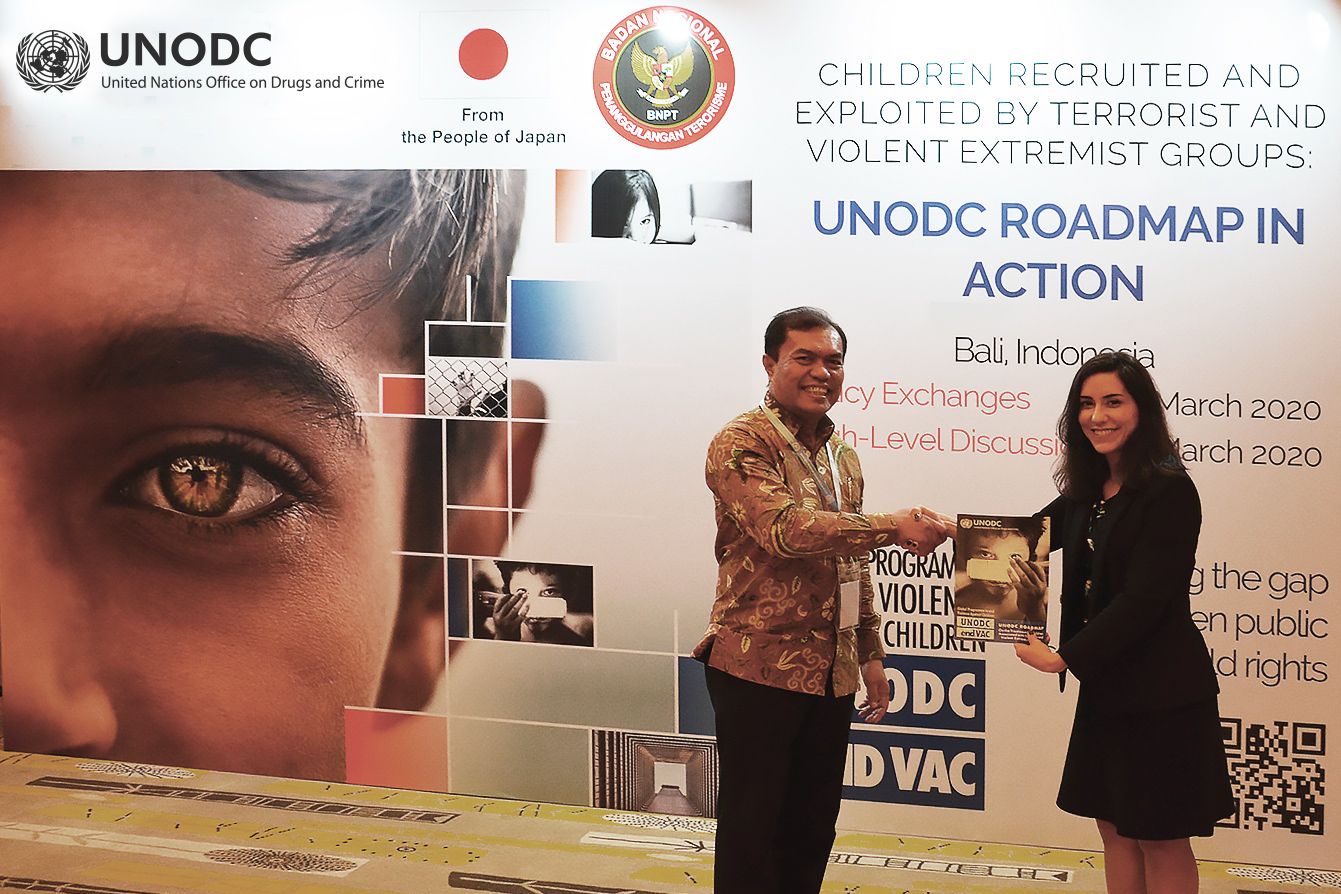
12 March 2020 – Terrorism is a global threat that disproportionately affects children. On 3 March 2020 high-level representatives from Indonesia, Malaysia, Maldives and the Philippines gathered in Bali in an event co-organised by Japan, Indonesia and the United Nations Office on Drugs and Crime (UNODC) reached political consensus on the urgency to tackle child recruitment and its consequences on children’s lives.
Opening the Event, the representative from Japan presented the value of the ‘UNODC Roadmap on the Treatment of Children Associated with Terrorist and Violent Extremist Group’ for the guidance it contains on how to prevent child involvement with terrorist groups and how to rehabilitate and reintegrate these children. He pledged Japan’s continued support to countries for the implementation of the Roadmap
In her remarks, the Prosecutor of the International Criminal Court (ICC), Fatou Bensouda, stated: “I applaud the UNODC Roadmap, which recognizes the need to work together and highlights areas closely linked to the mandate of my Office and of the Court, such as prevention and justice.” She also stressed the need to hold perpetrators of serious crimes against children accountable.
Building on its dual mandate on violence against children (VAC) and counter-terrorism, UNODC has been assisting countries facing these challenges for the past five years. Alexandra Martins, the coordination of the UNODC Global Programme to End VAC, expressed how "children associated with terrorist groups are to be considered and treated primarily as victims”, highlighting that “investing on their rehabilitation and reintegration is not an alternative to security, but a pre-requirement because there is no dichotomy between preserving public safety and protecting children”.
During the event, participants discussed key areas of intervention, and benefitted from the contribution of a psychosocial expert from the ICC. She emphasized the importance of medical, social and psychological support adapted to the circumstances and needs of these children, providing technical advice on how to integrate such support in their treatment.
High-level discussions led to the identification of priority actions at national level. Representatives from Malaysia stressed education and awareness-raising as key components of any effective prevention strategy to protect children from recruitment. The Filipino delegation highlighted the need to ensure that children in situation of armed conflict are treated according to international law, as also reflected in the Key Principles of the Roadmap. One of the areas on intervention identified by the Government was the need to equip frontline officers with child-sensitive training and child-friendly communication skills.
The government of Indonesia illustrated current efforts towards the rehabilitation and reintegration of children affected by terrorism. As a result of the Event, Indonesia took a step ahead and officially launched the “Bali Call for Action”, a political declaration which endorses the UNODC Roadmap and commits to translate it into action at national level. With this initiative, Indonesia also called upon Member States to join this historical declaration as a unique opportunity to adopt a common approach to protect children from terrorism.
Finally, the delegation from the Maldives endorsed the “Bali Call for Action”, underlining how these political commitments will be instrumental to addressing the situation of children affected by the Foreign Terrorist Fighters phenomenon. As a result of these advances, the Maldivian government requested UNODC’s assistance to become the first pilot country in the world to implement the UNODC Roadmap.
Useful links
The Bali Call for Action
UNODC Roadmap
UNODC-ENDVAC Webpages
E-Press Folder
Factsheet
Poster